Scooters Vs. Motorcycles
Webster Dictionary Definition of Scooter: An animal that pivots on the front feet and scoots the back end around, instead of pivoting on the front feet and kicking the hind feet.*
Webster Dictionary Definition of Moped: a person who mopes or is given to moping.**
Across Europe, Vespas or Lambrettas are simply referred to as mopeds. However, try telling an American who's riding one that he's on a nice moped and he'll retort sharply, "It's a scooter, not a moped! You see any pedals on this thing?" Why the animosity? I have no idea, but being British and having made that mistake with a few American `scooter' riders, I now know better. Never, ever call a `scooter' in America a `moped'. Enrico Piaggio is credited with the creation of the first motorscooter/moped. It came during a time when much of Europe was still coping with wartime gasoline rations. In December of 1947, the Vespa made its debut. Piaggio gave the bike its name after the president of Piaggio remarked that it was shaped like a vespa (Italian for `wasp'), with similar aerodynamics and bulbous fenders.
Throughout the '50s, '60s and '70s `mopeds' (aka scooters) infested European cities. Paris, Madrid and Athens have been swarming with two-stroke screaming two-wheelers for decades now. Scooters weren't just concentrated in the cities, though.
Across much of Western Europe these bikes came in handy for those in the profession of delivering mail or milk; even farmers would ditch their old diesel pickups to ride their mopeds to the local auction or market. Scooters made their initial debut in California during the mid to late `60s. It was during those years that the bikes became trendy and friendly to residents in the state's coastal communities.
However, in the `70s, enthusiasm for these bikes cooled and it wouldn't be until the '90s that they'd make a significant comeback.
Now, well into the new millennium, these bikes are enjoying their biggest popularity on the West Coast yet. But, honestly. Let's be frank.What's the deal with these little motorized bikes that, one would think, are just too small and dainty for any serious rider? The fact that dozens of scooter clubs are popping up all over the country and that most of the riders are men, it drives a person to think one very simple question: "Why?" I recently had the chance to chat with an enthusiastic member of the 7 Bridges Scooter Club based in Jacksonville, FL. Luke Owens owns three scooters and has had close to a dozen of them throughout his biking career. According to this enthusiast, riders for this class of bike are either made up of hardcore kids or alcoholic adults, ranging from their 20s to their early 30s. These riders tend to cruise around on Vespas, Lambrettas, but they also ride Kymcos, Derbis or even garden-variety Hondas and Yamahas. The theory is that many of the two-stroke engines are not just affordable but are also easy to work on. There's reportedly a huge percentage of scooter riders who do most, if not all of the work on their own bikes. And when it comes to work -- whether it's maintenance or modifications -- these riders take real pride in it.
According to the 7 Bridges Scooter Club, traditional upgrades are performance-oriented ones, like having the carburetor jetted and replacing the exhaust. Such enhancements will improve an engine's performance, and that leads me to my next point. I recently had the pleasure of attending a giant scooter rally in Atlanta, where I live. I found that with hundreds of the bikes lined up and all the owners sitting back talking about rides and machinery, the most common vein of conversation was about top speed. Apparently scooter riders -- although they prefer small, low-output engines -- take genuine pride in customizing their rides and going for the all-out highest speed. Now, as far as I can tell, most of these scooters -- when tuned to achieve maximum speed -- tend to hit between 70 - 80 mph.
Sure there are those that top 100 mph, but come on, what rider in his right mind would want to -- on a regular basis -- cruise on this style of bike at such speeds?
So, the inevitable question that I had to throw at scooter enthusiast Luke Owens was: "Why bother? Why not just buy a real motorcycle and be done with it?" Luke's response: "My penis is large enough as it is, I don't need to compensate for anything." "Really? Are you sure?" Scooters may be easy to work on, fun to use for an afternoon jaunt and affordable, but where's the so-called manliness, the muscle, the steel-horse thrill that comes with most any bike over at least 500cc? You see, I ride a Kawasaki Concours, and prior to that I was zipping around on a Suzuki GS750, and although I've ridden my fair share of scooters, I just can't see the appeal. They feel unbalanced, unstable and with such a general lack in thrust that when riding, it's nearly impossible to be aggressive (when necessary) in a tricky traffic situation. Now I'm not trying to be rude or even biased here, but if a motorcycle is the psychic representation of a man's genitalia, something large and fun to play with, then wouldn't all men want to have the biggest, baddest toy on the block?
Any -- maybe just about every -- motorcycle rider these days is well aware of the 'wave' you give to other riders you pass on the street - the slight hand gesture that signals a, `Hey, good to see ya' kind of thing. But I've noticed lately while hitting the roads of Atlanta, I'm slightly uncertain about giving the `wave' to scooter riders.
It's not that I don't see them, or that I don't care, it's just I feel to be in a category separate to them, a category that seems to be so far from those small-displacement two-strokes. Now, I've seen scooter riders cruising in freezing temperatures and buzzing through the rain, and I respect that, but what I still don't understand (even given the interview with the 7 Bridges Scooter Club) is why not simply upgrade to a stout, solid, heart-pounding motorcycle? Talk to any scooter rider and he or she will give you the same line that all motorcyclists give; `Live to Ride and Ride to Live.' There's no real apparent difference between the riding morals and ethics of those who cruise scooters or motorcycles: they both face the elements, they both deal with those horrible four-wheeled drivers and they both live to ride. So what could be the difference? Simply put: bike size. Scooters and motorcycles are different; why compare apples and pears? However, I think it is safe to say that riders in both categories are the same in a small arena of interests: a fascination with two wheels and a joy, love and obsession with the sensation of freedom that comes with the ride.
*Oxford Dictionary Definition of Scooter: motor scooter n. A usually two-wheeled vehicle with small wheels and a low-powered gasoline engine geared to the rear wheel.
** Oxford Dictionary Definition of Moped: a motorbike that can be pedaled or driven by a low-powered gasoline engine.
More by Rory Suchet



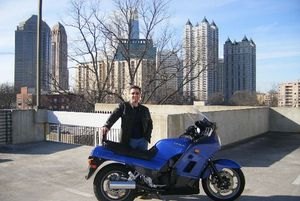




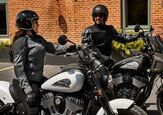
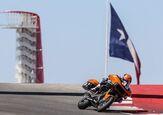

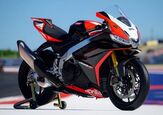

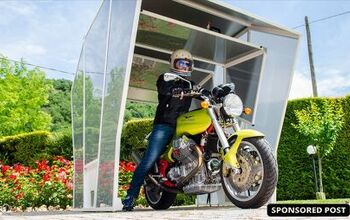
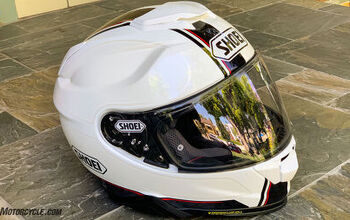
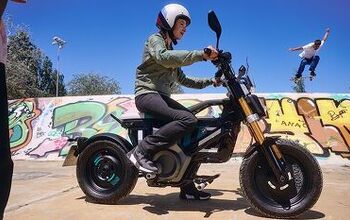
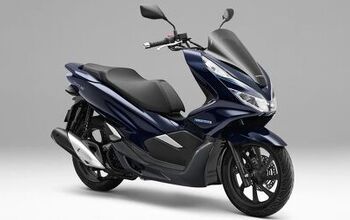
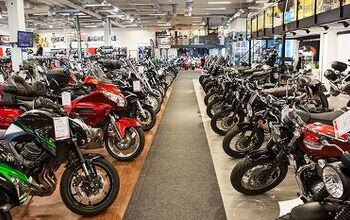
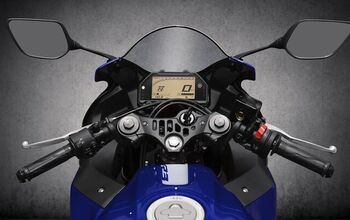
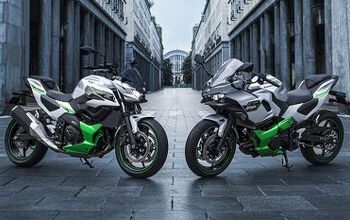
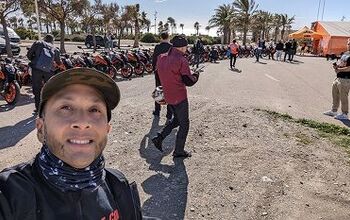
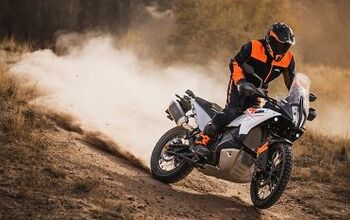
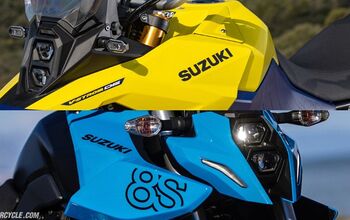
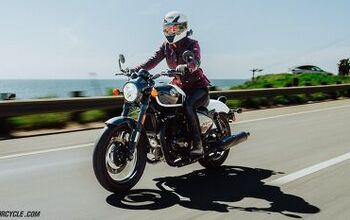
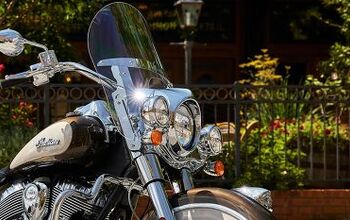
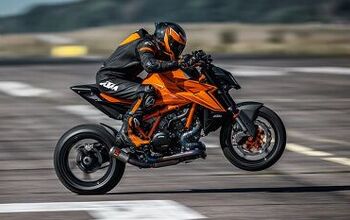
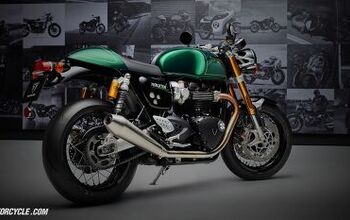

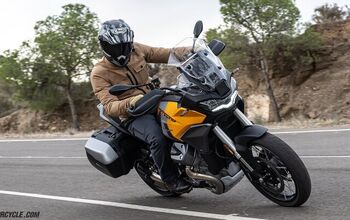
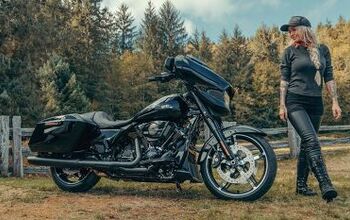
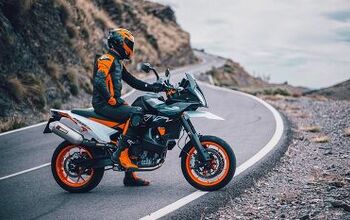
Comments
Join the conversation